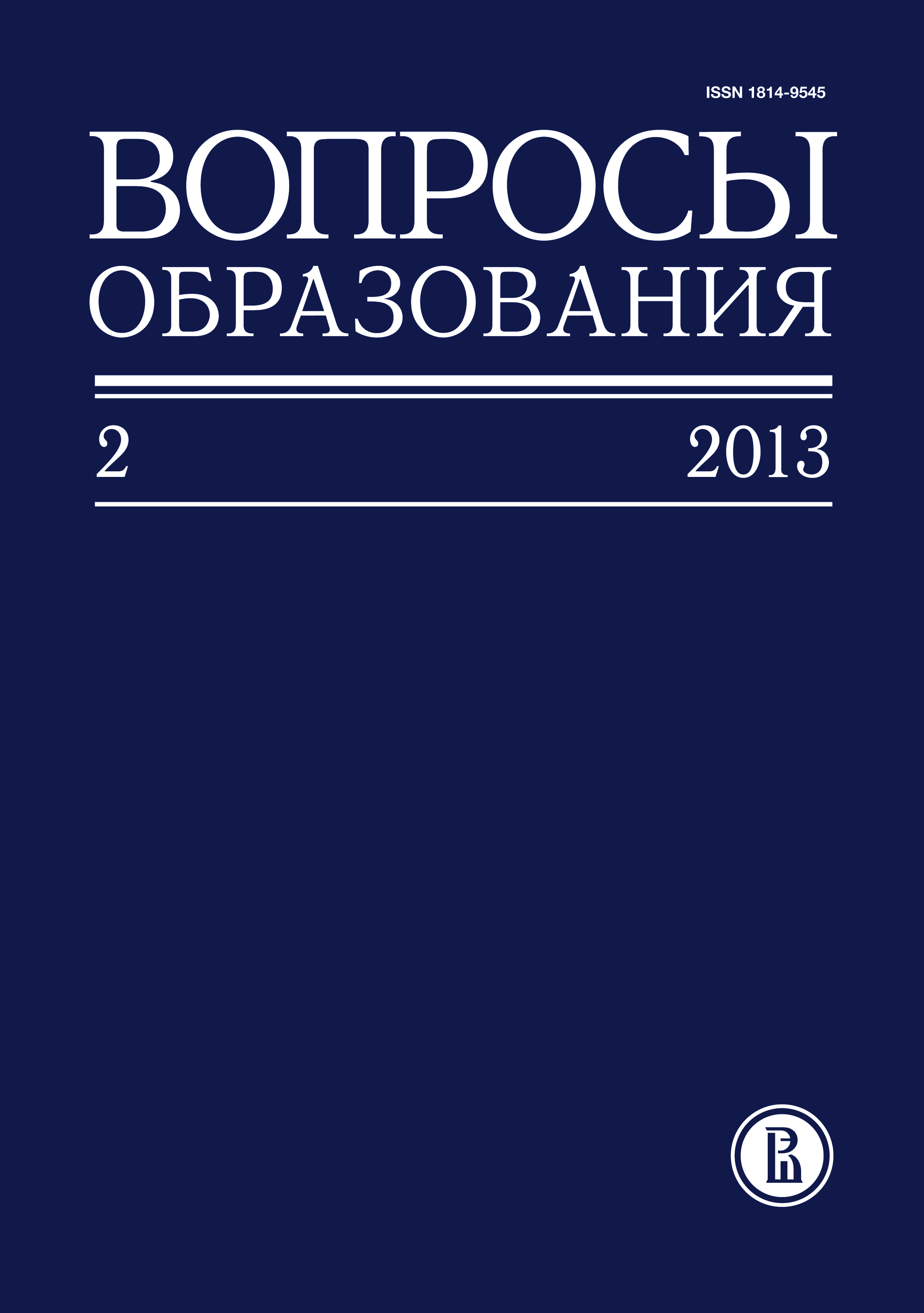Студенческий отсев в российских вузах: к постановке проблемы
Аннотация
Груздев Иван Андреевич —магистр социологии, аналитик Центра внутреннего мониторинга НИУ ВШЭ. Эл. адрес: van@gorod.org.ru
Горбунова Елена Васильевна — магистр социологии, аналитик Центра внутреннего мониторинга НИУ ВШЭ. Эл. адрес: evgorbunova@hse.ru
Фрумин Исак Давидович — доктор педагогических наук, профессор, научный руководитель Института образования НИУ ВШЭ. Эл. адрес: ifroumin@hse.ru
В связи с демографическими изменениями в обществе, приводящими к сокращению в общей численности населения доли людей студенческого возраста, а также институциональными изменениями в образовательной системе (реформой финансирования вузов) проблема отчисления студентов ставится как одно из приоритетных направлений исследования высшего образования. Феномен студенческого отсева в российских университетах рассматривается на основе анализа данных анкетирования и интервьюирования отчисленных из вуза студентов. Установлено, что отечественная система высшего образования характеризуется особым типом студенческого отсева, который представляет собой принудительный по отношению к студентам процесс, субъектом которого является университет, в частности преподаватели. Отчисление студентов в российских вузах качественно отлично от явления, описываемого в зарубежной литературе термином dropout и представляющего собой добровольное выбытие студента из вуза. Dropout является следствием недостаточной интеграции студента в университетскую жизнь и может быть предотвращен реализацией социализирующих и адаптационных программ.
Специфика студенческого отсева в России требует особых принципов регулирования уровня отчислений. Выявлено, что при принудительном отсеве отчисленным студентам присуще стремление вернуться к обучению (только 4% респондентов не планируют получать высшее образование), что свидетельствует о необходимости совершенствования критериев, использующихся для оценки студентов, и разработки институциональных форм дисциплинирования учащихся, не предполагающих их отчисление. Исследование механизмов и причин отсева имеет практическое значение для повышения эффективности образовательной политики университетов.








